 W
WCasimiro José Marques de Abreu was a Brazilian poet, novelist and playwright, adept of the "Ultra-Romanticism" movement. He is famous for the poem "Meus oito anos".
 W
WJosé Joaquim de Campos da Costa de Medeiros e Albuquerque was a Brazilian poet, politician, teacher, journalist, short story writer, civil servant, essayist, orator, novelist and dramatist. He is famous for writing the lyrics of the Brazilian Republic Anthem in 1890.
 W
WJosé Martiniano de Alencar was a Brazilian lawyer, politician, orator, novelist and dramatist. He is considered to be one of the most famous and influential Brazilian Romantic novelists of the 19th century, and a major exponent of the literary tradition known as "Indianism". Sometimes he signed his works with the pen name Erasmo.
 W
WAntônio Frederico de Castro Alves was a Brazilian poet and playwright, famous for his abolitionist and republican poems. One of the most famous poets of the "Condorism", he won the epithet of "O Poeta dos Escravos".
 W
WPedro Américo de Figueiredo e Melo was a Brazilian novelist, poet, scientist, art theorist, essayist, philosopher, politician and professor, but is best remembered as one of the most important academic painters of Brazil.
 W
WJoaquim de Sousa Andrade, better known by his pseudonym Sousândrade, was a Brazilian poet, adept of the "Condorist" movement. His poetry, exceedingly innovative for the time it was published, is now considered an early example of Symbolism and Modernism in Brazil.
 W
WJoaquim Francisco de Assis Brasil was a Brazilian lawyer, politician, diplomat, writer and poet. He founded the Liberator Party and was a supporter of republicanism. He served as Governor of Rio Grande do Sul in 1891–92 and Ministry of Agriculture in 1911.
 W
WCarlos Magalhães de Azeredo was a Brazilian poet, short story writer, diplomat and journalist. He founded and occupied the 9th chair of the Brazilian Academy of Letters, from 1897 until his death in 1963, thus being the academic that occupied his chair for the longest time and the youngest founder of the Academy.
 W
WAluísio Tancredo Gonçalves de Azevedo was a Brazilian novelist, caricaturist, diplomat, playwright and short story writer. Initially a Romantic writer, he would later adhere to the Naturalist movement. He introduced the Naturalist movement in Brazil with the novel O Mulato, in 1881.
 W
WManuel Antônio Álvares de Azevedo, affectionately called "Maneco" by his close friends, relatives and admirers, was a Brazilian Romantic poet, short story writer, playwright and essayist, considered to be one of the major exponents of Ultra-Romanticism and Gothic literature in Brazil. His works tend to play heavily with opposite notions, such as love and death, platonism and sarcasm, sentimentalism and pessimism, among others, and have a strong influence of Musset, Chateaubriand, Lamartine, Goethe and – above all – Byron.
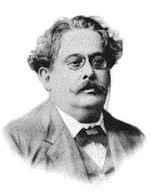 W
WArtur Nabantino Gonçalves de Azevedo was a Brazilian playwright, short story writer, chronicler, journalist and Parnassian poet. He is famous for consolidating in Brazil the "comedy of manners" genre, initiated by Martins Pena.
 W
WTobias Barreto de Meneses was a Brazilian poet, philosopher, jurist and literary critic. He is famous for creating the "Condorism" and revolutionizing Brazilian Romanticism and poetry. He is patron of the 38th chair of the Brazilian Academy of Letters.
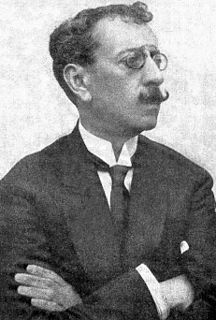 W
WOlavo Brás Martins dos Guimarães Bilac, often known as Olavo Bilac, was a Brazilian Parnassian poet, journalist and translator. Alongside Alberto de Oliveira and Raimundo Correia, he was a member of the "Parnassian Triad". He was elected the "Prince of Brazilian Poets" in 1907 by the magazine Fon-Fon. He wrote the lyrics of the Brazilian Flag Anthem.
 W
WJosé Bonifácio de Andrada e Silva was a French-born Brazilian poet, teacher and senator. He is known as "the Younger" to distinguish him from his grand-uncle, José Bonifácio de Andrada e Silva, "the Elder" or "the Patriarch", a famous statesman who was one of the most important mentors of Brazilian independence.
 W
WPedro Luziense de Bittencourt Calasans was a Brazilian poet, playwright and journalist, adept of the "Ultra-Romanticism" movement.
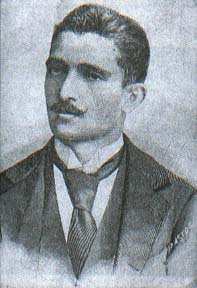 W
WAdolfo Ferreira Caminha was a Brazilian Naturalist novelist, famous for his polemical novel Bom-Crioulo, which deals with race and homosexuality.
 W
WAfonso Celso de Assis Figueiredo Júnior, titled Count of Afonso Celso by the Holy See, better known as Afonso Celso, was a teacher, poet, historian and Brazilian politician. He is one of the founders of the Brazilian Academy of Letters, where he occupied the chair number 36.
 W
WRaimundo da Mota de Azevedo Correia was a Brazilian Parnassian poet, judge and magistrate. Alongside Alberto de Oliveira and Olavo Bilac, he was a member of the "Parnassian Triad".
 W
WHipólito José da Costa Pereira Furtado de Mendonça was a Brazilian journalist and diplomat considered to be the "father of Brazilian press".
 W
WJoão da Cruz e Sousa was a Brazilian poet and journalist, famous for being one of the first Brazilian Symbolist poets ever. A descendant of African slaves, he has received the epithets of "Black Dante" and "Black Swan".
 W
WAntônio Gonçalves Dias was a Brazilian Romantic poet, playwright, ethnographer, lawyer and linguist. A major exponent of Brazilian Romanticism and of the literary tradition known as "Indianism", he is famous for writing "Canção do exílio", the short narrative poem I-Juca-Pirama, the unfinished epic Os Timbiras, and many other nationalist and patriotic poems that would award him posthumously with the title of national poet of Brazil. He was also an avid researcher of Native Brazilian languages and folklore.
 W
WTeófilo Odorico Dias de Mesquita was a Brazilian poet, journalist and lawyer, nephew of the famous Romantic author Gonçalves Dias.
 W
WJoaquim Osório Duque-Estrada was a Brazilian poet, essayist, journalist, literary critic and professor. He is famous for writing in 1909 a poem that would become the lyrics of the Brazilian National Anthem in 1922.
 W
WManuel Deodoro da Fonseca was a Brazilian politician and military officer who served as the first President of Brazil. He took office after heading a military coup that deposed Emperor Pedro II and proclaimed the Republic in 1889, disestablishing the Empire, and stepped down little more than two years later, in 1891, under great political pressure. He is therefore the first Brazilian President to have resigned from office.
 W
WAdelino Fontoura Chaves was a Brazilian poet, actor and journalist. He is the patron of the 1st chair of the Brazilian Academy of Letters.
 W
WFrancisco Antônio de Almeida Júnior was a Brazilian astronomer, engineer and university professor during the latter half of the 19th century. Almeida was part of a commission tasked with calculating the stellar parallax of the Sun during the 1874 transit of Venus. Although relatively unknown, Almeida was an important figure in the development of cinematography and he was the first known Brazilian to visit Japan and publish a book about his sojourn in China and Japan.
 W
WLuís José Junqueira Freire was a Brazilian poet and Benedictine monk, adept of the "Ultra-Romanticism" movement and author of Inspirações do Claustro. He is the patron of the 25th chair of the Brazilian Academy of Letters.
 W
WLuís Gonzaga Pinto da Gama was a Brazilian Romantic poet, journalist, lawyer, Republican and a prominent abolitionist.
 W
WAfonso Henrique da Costa Guimarães, known as Alphonsus de Guimaraens; was a Brazilian poet.
 W
WBernardo Joaquim da Silva Guimarães was a Brazilian poet and novelist. He is the author of the famous romances A Escrava Isaura and O Seminarista. He also introduced to Brazilian poetry the verso bestialógico, also referred to as pantagruélico — poems whose verses are very nonsensical, although very metrical. Under the verso bestialógico, he wrote polemical erotic verses, such as "O Elixir do Pajé" and "A Origem do Mênstruo". A non-erotic poem written in verso bestialógico is "Eu Vi dos Polos o Gigante Alado".
 W
WFrancisco de Sales Torres Homem, Viscount of Inhomirim, was a physician, lawyer, journalist, romantic writer, deputy, senator, top officer of the National Treasury, president of the Bank of Brazil and Minister of Treasury. The only afrobrazilian ever to have been in charge of the economy of Brazil throughout its history.
 W
WTristão de Alencar Araripe Júnior was a Brazilian lawyer, literary critic, and writer.
 W
WJoaquim José da França Júnior was a Brazilian playwright, journalist and, initially, a painter. Alongside Martins Pena, he is one of the most famous adepts of the "comedy of manners" genre.
 W
WAureliano José Lessa (1828–1861) was a Brazilian poet, adept of the "Ultra-Romanticism" movement. Born in Minas Gerais in 1828, he moved to São Paulo in 1847 to study Law, but received his bacharel degree at the Faculdade de Direito de Olinda, in Pernambuco, in 1851. He worked as attorney general in the city of Ouro Preto, and also as a lawyer in the cities of Diamantina and Serro.
 W
WAntônio Augusto de Lima was a Brazilian journalist, poet, musician, magistrate, jurist, professor and politician. He was born in Congonhas de Sabará.
 W
WAntônio de Almeida Lustosa was a Brazilian Roman Catholic prelate and professed member from the Salesians of Don Bosco. Lustosa served in two dioceses and two archdioceses in his career where he was reputed for his holiness and his learning. He introduced a range of innovations from media to new parishes and seminaries in order to restore his dioceses and archdioceses. He was a constant evangelizer and was also an author who wrote children's literature and music in addition to hagiographical and theological works. Lustosa was still a reluctant bishop but accepted each new position in obedience. But his health forced him to retire in 1963 and he still remained a noted pastor following his resignation.
 W
WJoaquim Manuel de Macedo was a Brazilian novelist, doctor, teacher, poet, playwright and journalist, famous for the romance A Moreninha.
 W
WJoaquim Maria Machado de Assis, often known by his surnames as Machado de Assis, Machado, or Bruxo do Cosme Velho, was a pioneer Brazilian novelist, poet, playwright and short story writer, widely regarded as the greatest writer of Brazilian literature. Nevertheless, Assis did not achieve widespread popularity outside Brazil during his lifetime. In 1897 he founded and became the first President of the Brazilian Academy of Letters. He was multilingual, having taught himself French, English, German and Greek in later life.
 W
WDomingos José Gonçalves de Magalhães, Viscount of Araguaia, was a Brazilian poet, playwright, physician and diplomat. He is considered the founder of Romanticism in Brazilian literature, and was a pioneer of the Brazilian theatre.
 W
WJoão Carlos de Medeiros Pardal Mallet was a Brazilian journalist and novelist. He is the patron of the 30th chair of the Brazilian Academy of Letters.
 W
WAntônio Peregrino Maciel Monteiro, 2nd Baron of Itamaracá was a Brazilian poet, orator, diplomat, politician, physicianm and journalist. He is the patron of the 27th chair of the Brazilian Academy of Letters, patron of the 7th chair of the Pernambucan Academy of Letters, and of the 23rd chair of the National Academy of Medicine.
 W
WHenrique Maximiano Coelho Neto was a Brazilian writer and politician. He founded and occupied the second chair of the Brazilian Academy of Letters, from 1897 until his death in 1934. He was also the president of the aforementioned Academy in 1926.
 W
WDomingos Olímpio Braga Cavalcanti was a Brazilian novelist, journalist and playwright, famous for his Naturalist novel Luzia-Homem.
 W
WAntônio Mariano de Oliveira was a Brazilian poet, pharmacist and professor. He is better known by his pen name Alberto de Oliveira.
 W
WFrancisco Otaviano de Almeida Rosa was a Brazilian poet, lawyer, diplomat, journalist and politician. He is famous for translating into Portuguese works by famous writers such as Horace, Catullus, Lord Byron, William Shakespeare, Percy Bysshe Shelley, Victor Hugo and Johann Wolfgang von Goethe, mostly of them for the first time.
 W
WFrancisco de Paula Ney was a Brazilian poet and journalist. A pre-eminent figure of the bohemian Rio de Janeiro of the Belle Époque, he was a friend of Coelho Neto, Aluísio Azevedo and Olavo Bilac. He was a poet famous for writing anonymous satires and jokes for the journals where he worked.
 W
WLuís Carlos Martins Pena was a Brazilian playwright, famous for introducing to Brazil the "comedy of manners", winning the epithet of "the Brazilian Molière".
 W
WRaul d'Ávila Pompeia was a Brazilian novelist, short story writer and chronicler. He is famous for the Impressionist romance O Ateneu.
 W
WManuel José de Araújo Porto-Alegre, Baron of Santo Ângelo, was a Brazilian Romantic writer, painter, architect, diplomat and professor, considered to be one of the first Brazilian editorial cartoonists ever. He is the patron of the 32nd chair of the Brazilian Academy of Letters.
 W
WLaurindo José da Silva Rabelo was a Brazilian Ultra-Romantic poet, teacher and medician. Famous for his lundu lyrics and satires, he won the epithet of "the Brazilian Bocage", and, because of his physical appearance, the nickname "Poeta-Lagartixa" ("Gecko-Poet").
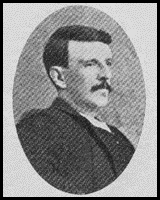 W
WJúlio César Ribeiro Vaughan was a Brazilian Naturalist novelist, philologist, journalist and grammarian. He is famous for his controversial romance A Carne and for designing the flag of the State of São Paulo, which he wanted to be the flag of Brazil.
 W
WSílvio Vasconcelos da Silveira Ramos Romero was a Brazilian "Condorist" poet, essayist, literary critic, professor, journalist, historian and politician.
 W
WAntônio Gonçalves Teixeira e Sousa was a Brazilian poet, novelist and playwright, whose novel O Filho do Pescador is considered to be the first Romantic novel in Brazil.
 W
WJoão Cardoso de Meneses e Sousa, Baron of Paranapiacaba was a Brazilian poet, translator, journalist, lawyer and politician.
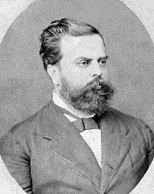 W
WPedro Luís Pereira de Sousa was a Brazilian poet, politician, orator and lawyer, adept of the "Condorist" movement. He is the patron of the 31st chair of the Brazilian Academy of Letters.
 W
WAlfredo Maria Adriano d'Escragnolle Taunay, Viscount of Taunay, was a French Brazilian writer, musician, professor, military engineer, historian, politician, sociologist and nobleman. He is famous for the Regionalist novel Inocência, considered a major forerunner of Naturalism in Brazil, and for A Retirada da Laguna, an account of an episode in the war against Paraguay. The Brazilianist Leslie Bethell has described it as "the one undoubted literary masterpiece produced by the Paraguayan War".
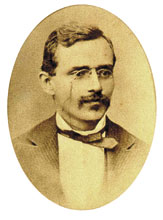 W
WJoão Franklin da Silveira Távora was a Brazilian novelist, journalist, politician, lawyer and dramatist, famous for his Regionalist romance O Cabeleira, set in 18th-century Pernambuco. He wrote under the pen names Semprônio and Farisvest.
 W
WLuís Nicolau Fagundes Varela was a Brazilian Romantic poet, adept of the "Ultra-Romanticism" movement. He is patron of the 11th chair of the Brazilian Academy of Letters.
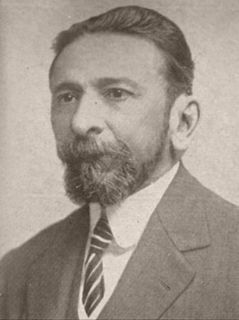 W
WJosé Veríssimo Dias de Matos was a writer, educator, journalist, literary critic, and founding member of the Brazilian Academy of Letters.